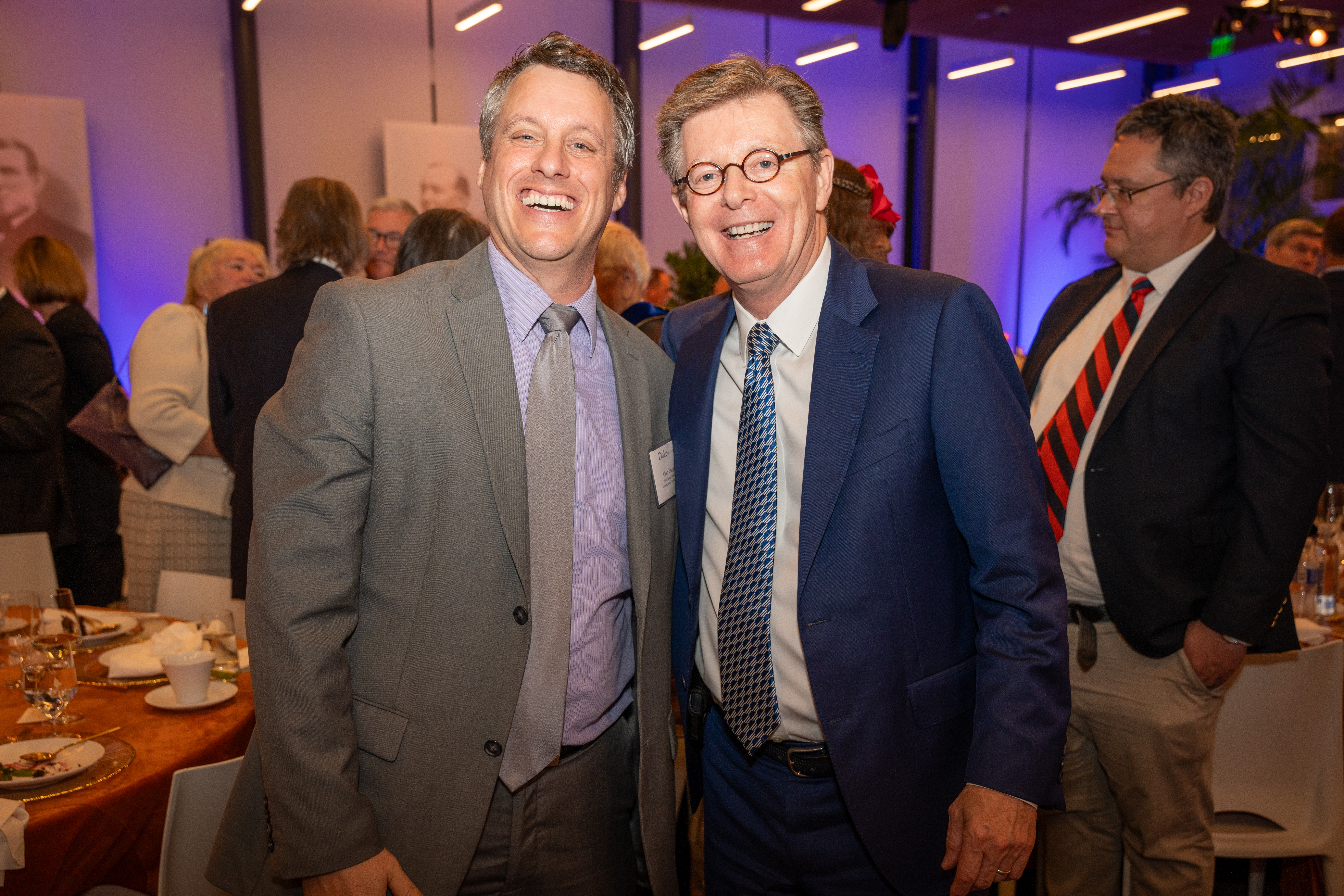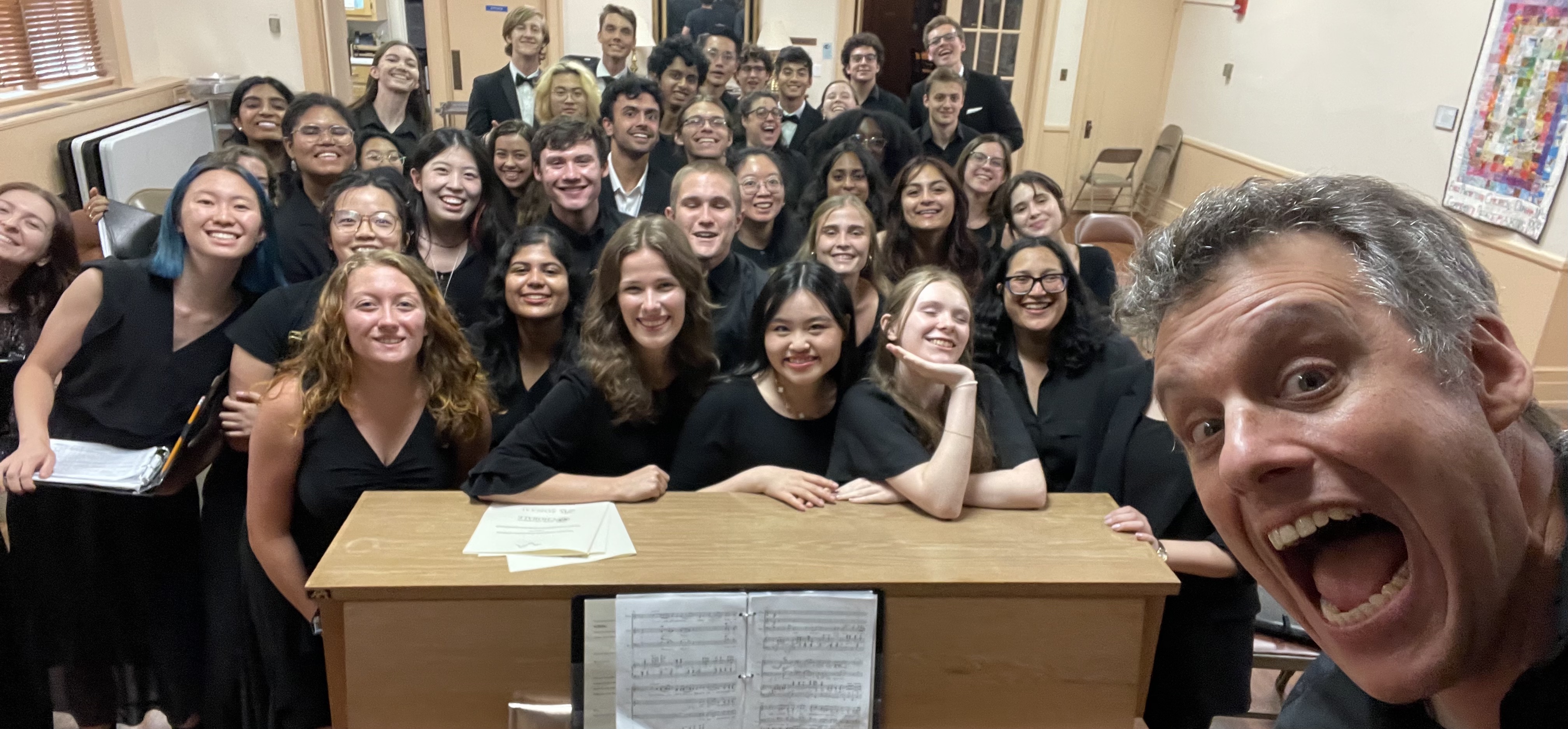As a first-year Duke student in the late '90s, Allan Friedman made a life-changing decision.
Through a series of music courses in the Biddle Music Building, his passion for music ignited, illuminating a new career pathway. After years of musical collaborations in Durham and at Duke, he landed in his dream role—director of the Duke Chorale.
“I was encouraged by professors who are now my colleagues,” Friedman says. “It’s a full-circle moment to now be Chorale conductor at Duke.”
That fearless pursuit of his passion—and its effects on Duke’s future musicians is why Friedman is being awarded the Alumni Distinguished Undergraduate Teaching Award by Duke Alumni Engagement and Development during Homecoming Weekend, Sept. 27-29, 2024. Given annually by AED to faculty members who both excel in their work and have inspired their students, the award is one of the university’s only student-nominated awards. Award recipients can select a Duke library to receive a donation in their name; naturally Friedman chose the Duke Music Library.
“He has been the most influential professor for me at Duke,” one student wrote in Friedman’s award nomination.
“He has grown the Duke Chorale into a beautiful, 55-voice symphony,” wrote another.
“He gives importance to students’ ideas, incorporating them into our learning,” reflected another.

As the director of Duke Chorale, the university’s primary choral group, Friedman says he has the opportunity to work with students of various backgrounds and experience levels, many of whom are not music majors. They voluntarily choose to be part of the Chorale, he says, which creates a musical experience that can be both challenging and rewarding.
Recently, Friedman had the Chorale sight-read and perform a difficult piece by Johann Sebastian Bach, a composer whose work many students had never sung. The piece proved to be a challenge, with many students having difficulties through the first few reads. After 20 minutes of breaking down sections and working together, the Chorale clicked and the piece came alive, Friedman says.
The success of learning that piece together came not only from the students’ dedication, but their willingness to listen to each other, Friedman says.
“To have over 50 people have an epiphany in the same room was thrilling,” he says.
The biggest takeaway Friedman hopes to leave with his students? It’s that music can teach them not only how to listen to notes and tempos but also to personalities, cultures, societies and politics—the parts that make up a person. That kind of insight can make a difference as students are charting their own course at Duke and beyond.
“I want my students not only excited about Duke Chorale, but for the chance to create change in the world.”
